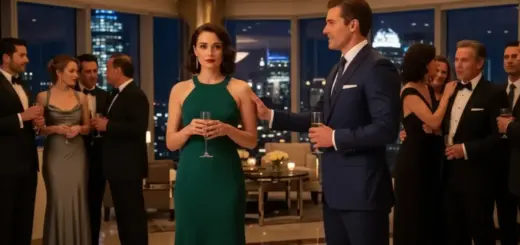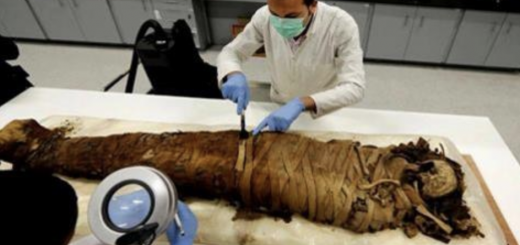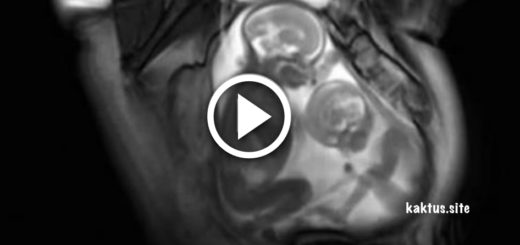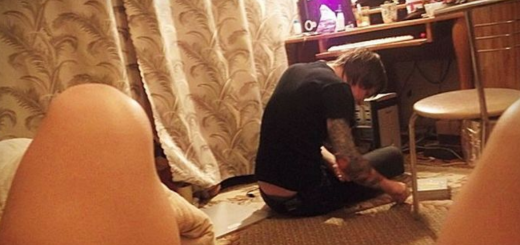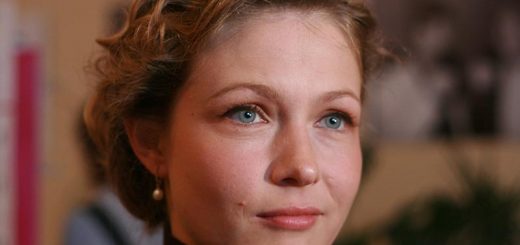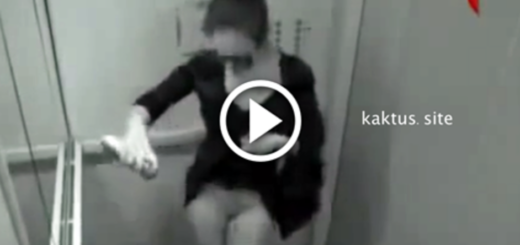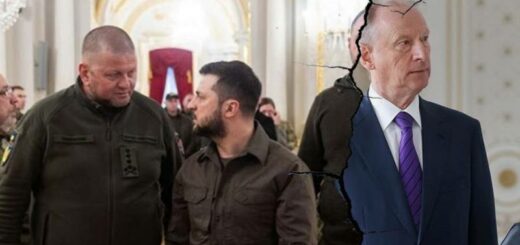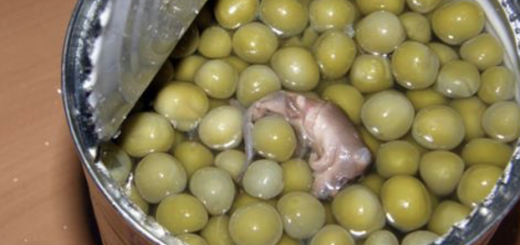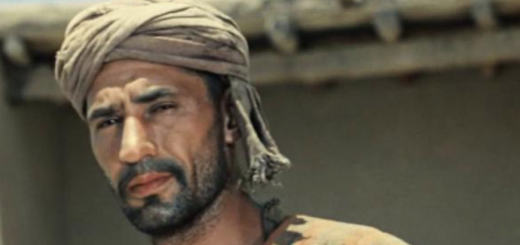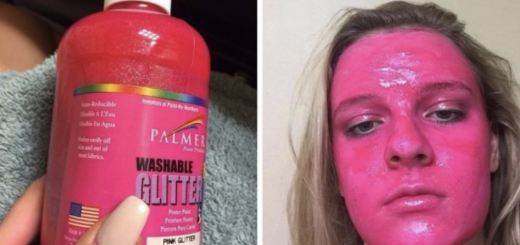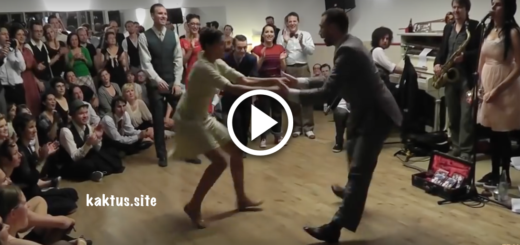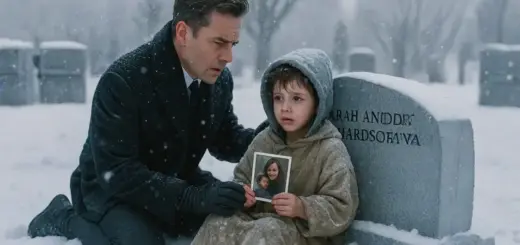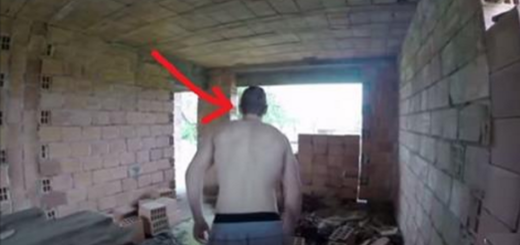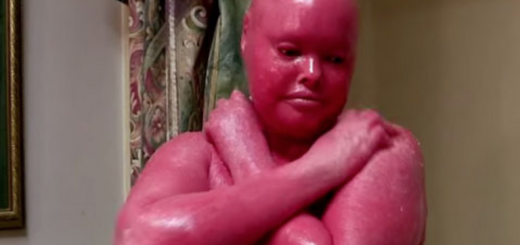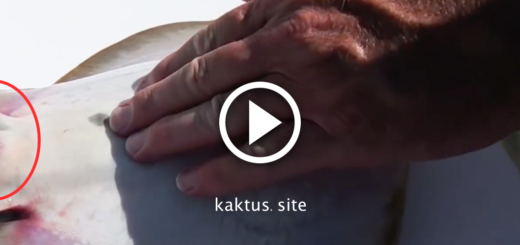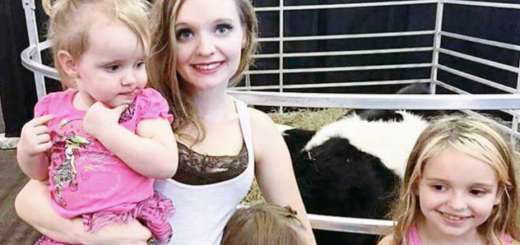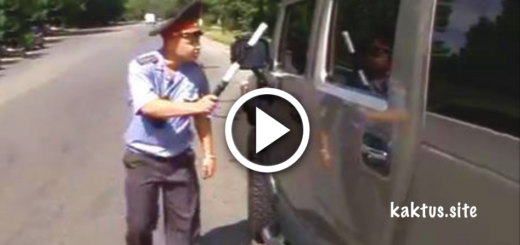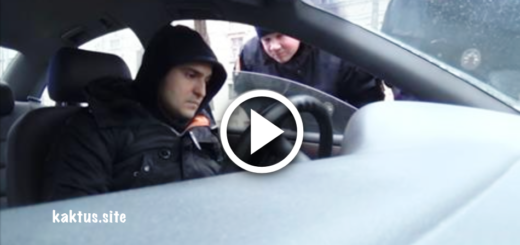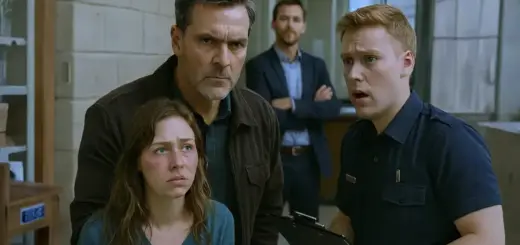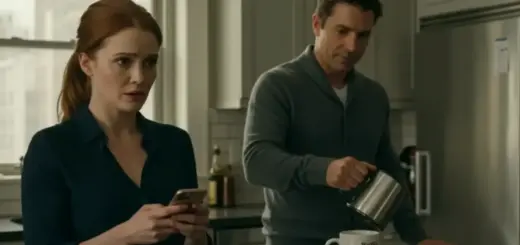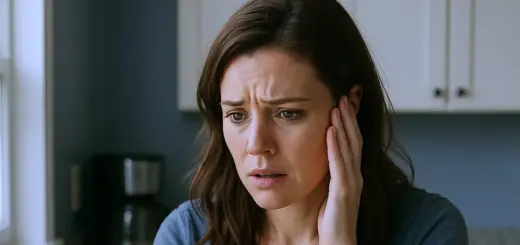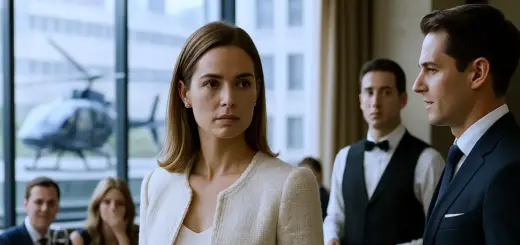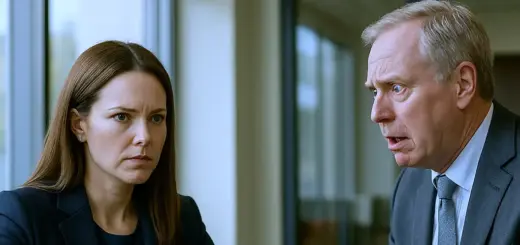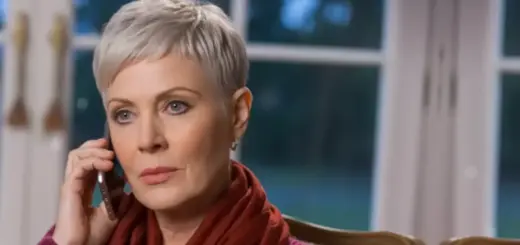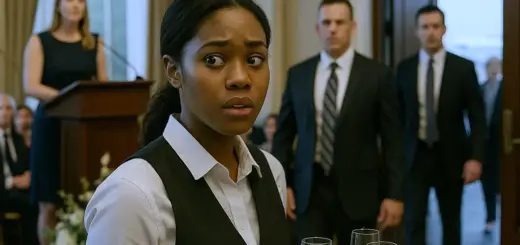I was hired to impersonate him. The room fell silent except for someone’s coffee cup hitting a saucer too hard. Robert Steinberg’s mouth opened and closed like a fish gasping for air.
Jennifer Wu pulled out her phone, probably calculating her firm’s exposure to whatever was unfolding. “Mr. Webb,” Agent Brennan said, clearly already knowing his real name. “You’re under arrest for conspiracy to commit fraud, identity theft, and money laundering.”
As they cuffed Marcus, he looked at me with something like gratitude. “The storage unit on Queens Boulevard,” he said quickly. “Unit 447.”
“Everything’s there.” While agents read Marcus his rights, my laptop chimed with a notification I’d been expecting. The financial virus had activated.
On my screen, I watched in real time as accounts across the Caymans, Switzerland, and Cyprus froze simultaneously. $47 million in stolen funds, locked in digital amber. Transaction records automatically forwarded to federal prosecutors, the IRS, the SEC.
Every agency that Aiden thought he’d evaded now had a complete record of his crimes. “Mrs. Mercer,” Agent Brennan approached me while her team secured Marcus. “We’ll need you to come with us for a formal statement.”
“Of course.” But first, these people deserve to know why they’re here. I picked up my phone, finding the recording of Kaylee’s call from Tuesday morning.
Her voice filled the room, clear and professional. “I need to ask you something strange. Your husband—is he home right now?” The recording played through those first moments of discovery.
The gathered executives listened with growing comprehension, understanding dawning on their faces. They weren’t here for an anniversary party. They were witnesses to the unraveling of a massive fraud that could have destroyed their companies.
“Your husband,” Agent Brennan addressed the room while her team worked, “has been stealing corporate secrets and facilitating insider trading using information obtained through his wife’s forensic accounting work.” The man you’ve been meeting with for the past three months was Mr. Webb, hired to maintain the illusion while the real Aiden Mercer attempted to flee with stolen assets. David Martinez sank into our couch, calculating his firm’s exposure.
Jennifer Wu was already on the phone with her legal team. But Robert Steinberg walked over to me, his expression shifting from shock to something like admiration. “You figured it out.”
“You set this up.” I nodded, exhausted suddenly. He counted on me not noticing, or not being able to prove it if I did.
“The audit irregularities you mentioned Sunday were real.” Your systems were compromised. But now the FBI has everything they need to trace exactly what was taken and how.
Agent Brennan’s phone buzzed. She answered, listened, then looked at me. “French authorities confirm they have Aiden Mercer and Madison Vale in custody.”
“They’ll be extradited to face charges here.” The apartment that had been our home, our sanctuary, was now a crime scene. Agents photographed everything, collected evidence, treated our life together as exhibits in a federal case.
The assembled witnesses gradually left, each stopping to offer awkward condolences or confused gratitude. As the last agent prepared to leave, Agent Brennan handed me a card. “We’ll need you to testify.”
“Your forensic work, the virus you created to track the money, it’s the foundation of our case.” “I’ll be there,” I said meaning it. The apartment fell silent.
I stood in our kitchen, surrounded by the remnants of Marcus’s last performance. His coffee cup still on the counter, the blanket he’d used on the couch, the notes he’d hidden throughout the apartment to remember his lines. Props in a play that had finally ended.
My phone buzzed with a news alert. Video from Charles de Gaulle, shaky but clear. Aiden in handcuffs, his perfect composure shattered.
Being led through the airport while travelers stopped to stare. Madison beside him, designer makeup streaked with tears. Her Parisian dream ending in French police custody.
I watched the video one more time before closing my laptop. Aiden’s arrest playing out in grainy airport footage that had somehow become the most watched clip on financial news channels. The timestamp in the corner read six months ago, but it felt like a lifetime had passed since that Tuesday morning when my world split in two.
The apartment stood empty around me now, our furniture sold or donated, walls bearing pale rectangles where artwork once hung. The movers had taken the last boxes yesterday, leaving only the echoes of a marriage that had been more performance than partnership. I stood at the windows overlooking Manhattan, keys heavy in my hand, waiting for the building manager who would take possession in 20 minutes.
The divorce proceedings had moved with unusual speed once federal prosecutors presented their case. Aiden’s attorney, working from a French detention center while fighting extradition, had little leverage against evidence of fraud, identity theft, and conspiracy. The judge, a woman who’d seen enough financial crimes to recognize predatory behavior, had been particularly unsympathetic to a husband who’d hired an actor to replace himself while liquidating marital assets.
The settlement left me with more than I’d expected. The apartment sale proceeds, recovered funds from the frozen accounts, and damages that Aiden’s insurance company paid rather than face a public trial. Money couldn’t buy back three months of sleeping next to a stranger or seven years with a man capable of such deception, but it could buy freedom to rebuild.
My phone rang, showing a client appointment reminder. The irony wasn’t lost on me that my trauma had become my specialty. The office space I’d leased in the Flatiron District bore a simple brass nameplate: “Chin Forensic Consulting, Specialist in Marital Asset Protection and Identity Verification.”
What started as word-of-mouth referrals had grown into a waiting list of women who suspected their realities had been edited. Just last week, I’d helped a surgeon from the Upper East Side discover her husband of 15 years had been using deepfake technology to appear at medical conferences while actually running a separate practice in Miami. The week before, a Broadway producer learned her spouse had hired three different lookalikes to maintain alibis across multiple cities.
Each case felt like excavating layers of deception with the same tools that had saved my own life. The building manager arrived, accepting the keys with professional detachment. As I rode the elevator down for the last time, my phone buzzed with a text from Kaylee.
“Giovanni’s at 7? My treat.” Giovanni’s hadn’t changed in 40 years, still serving the same red sauce recipes our grandmother had declared the only acceptable Italian food outside of Naples. The vinyl booths remained patched with duct tape, the checkered tablecloths bore decades of wine stains, and the owner’s son still couldn’t pronounce bruschetta correctly despite being third-generation Italian-American.
Kaylee waited at our usual corner booth, a bottle of Chianti already open. She stood when she saw me, pulling me into a hug that lasted longer than necessary. We’d grown closer through this ordeal, the shared trauma creating a bond that went beyond sisterhood.
“You did it,” she said, pouring wine into glasses that looked like they’d survived both world wars. “The apartment’s really gone?” “Handed over the keys 20 minutes ago.”
I took a sip, the cheap wine tasting like childhood Sunday dinners. “Feel strange.” Seven years erased in an afternoon.
“Not erased.” “Transformed.” Kaylee raised her glass. “To the woman who figured out her husband was in two places at once and brought down an international fraud ring.”
“To the pilot who made the phone call that saved my life.” I countered. We drank, the ritual of it more important than the wine.
Kaylee had carried guilt about that morning for months, convinced she’d destroyed my marriage with one phone call. I’d tried explaining that she’d revealed the destruction, not caused it, but survivor’s guilt doesn’t respond well to logic. “I have something for you,” she said, pulling an envelope from her purse.
It arrived at my building yesterday addressed to you care of me. The return address showed Dayton, Ohio. Marcus Webb’s handwriting, careful and precise.
I opened it slowly, not sure I wanted to hear from the man who’d lived my life for three months. “Dear Ava,” the letter began, “I wanted to reach out now that the legal proceedings are finished.” First, thank you for not pressing additional charges.
The FBI had enough without your testimony to give me probation and community service instead of prison time. I’m teaching acting classes at a community college here, finally using my skills for something honest. I tell my students about those three months, about how the best performance of my life was also the worst thing I’d ever done.
Some roles, I tell them, aren’t worth playing no matter how much they pay. I think about you sometimes, wondering how someone recovers from what Aiden did. Then I read about your new firm, about the women you’re helping, and I understand that you’ve turned poison into medicine.
That’s the kind of strength I didn’t know existed. The storage unit had one item I didn’t give the FBI, a photo from your wedding that was in Aiden’s instruction packet. You looked genuinely happy.
I’m sorry I was part of taking that from you. I hope someday you find something real to replace what was stolen. With sincere regret and genuine admiration, Marcus Webb.
Folded inside the letter was the photograph, Aiden and me cutting our wedding cake, both of us laughing at something off-camera. I studied my younger self, trying to remember what had been funny enough to cause such genuine joy. The memory wouldn’t come.
“He seems genuinely sorry,” Kaylee observed, reading over my shoulder. “He was a victim too in his way.” Aiden destroyed multiple lives chasing money that’s now frozen in federal custody.
I tucked the photo back in the envelope. Marcus just had the misfortune of being desperate enough to take the role. We ordered our usual, pasta arrabiata for me, linguine vongole for Kaylee with enough garlic bread to concern a cardiologist.
The familiar flavors tasted like home, like continuity in a life that had been completely reimagined. “What’s next?” Kaylee asked, spinning pasta with practiced ease. “Rebecca Harrison tomorrow.”
CEO of a tech startup. She thinks her husband might be using AI to fake business trips. Then Thursday, the Whitman case.
“I meant for you.” Not work. You.
I considered the question, letting it sit between us like another dinner guest. Six months ago, I’d thought my future was mapped out in comfortable predictability. Now, at 37, I was single, successful in a field I’d invented and completely uncertain about everything except my next client appointment.
“I don’t know.” I admitted, surprising myself with the honesty. And that’s oddly liberating.

